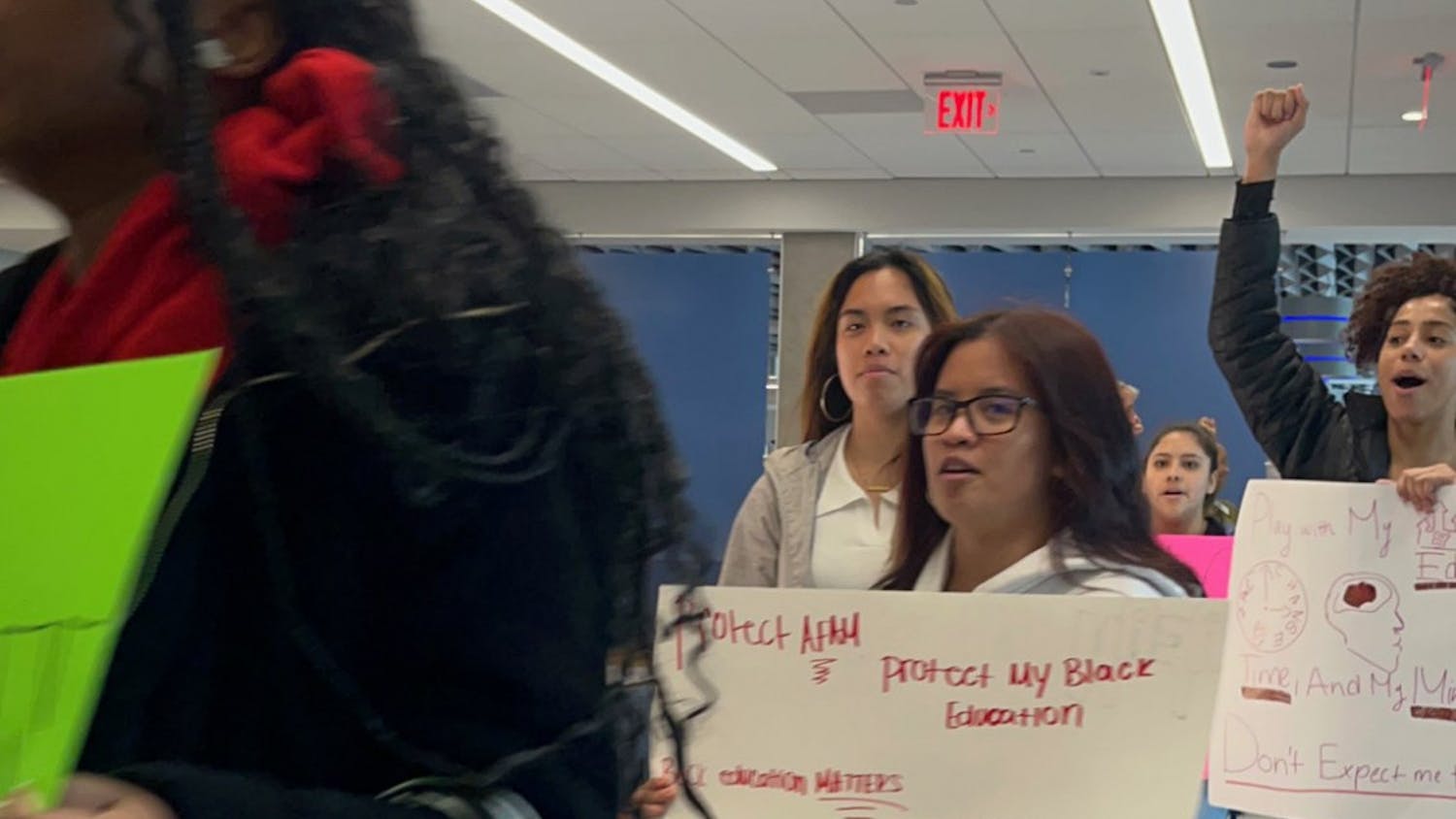On June 29 my father passed away due to health complications.
Though it’s been months, I am still not sure I will ever fully recover.
Some days, I feel perfectly normal. However, for each of those days, there comes one where I will see a shirt of his on the stairs or I will stare at the tomato plants he planted in the spring as they begin to wither away.
[caption id="attachment_20635" align="aligncenter" width="720"] The author’s father, Bert (right), died from health complications in June.
The author’s father, Bert (right), died from health complications in June.
Photo via Facebook/Julie Trien[/caption]
These times have been some of my most difficult, but I’m learning to control the swell of emotion I feel.
Sometimes without warning, I find myself transported back to the moment when I realized I lost my best friend. Sometimes, my mind drifts to a simple memory, like driving with him to get coffee, and I’ll begin to cry in public.
What was worse than my volatile emotions was the fact that for the first couple of months, I thought I was weak for feeling them. I kept going back to the Kübler-Ross model for grief that I learned in high school – denial, anger, bargaining, depression and acceptance. I wondered why I never felt denial, never tried to bargain and instead seemed stuck in this deep sadness.
Only after months of letting my emotions out naturally and turning to those around me for support did I feel comfortable admitting my feelings to myself. I learned that my experience is unique and that I should not have to follow a specific formula for grief.
According to the 2007 Yale Bereavement Study, mourners do not typically follow the five stages of grief in order. Among the 233 participants analyzed, researchers found that a majority of them accepted the death of their loved one from the outset and reported feelings of yearning for the deceased more than feelings of depression.
Also, Phillip Kuhen’s research in “Cultural Coping Strategies and their Connection to Grief Therapy Modalities for Children,” shows that one’s culture is a stronger indicator of how he or she will respond to death.
In a series of interviews with clinical social workers, therapists and counselors, Kuhen found that their patients were often influenced by family traditions and religious backgrounds.
My friends and family have played a major role in the process I experienced after losing my father. I was afraid to share my feelings with them because I thought that such negativity would weigh them down. However, sharing with them was the best thing I could have done. I learned how they were grieving and that I was not alone in the process.
Even though I’m not sure if or when I will fully recover, these months of grieving have taught me that it is okay. I have learned that mine and my family’s grief serves as a testament to the loving impact my father had on our lives and that there is nothing wrong about being upset over our loss.
For that reason, I can find beauty in the sadness.
Julie Trien is a junior Journalism major from Denville, N.J. She can be reached at julie.trien@student.shu.edu.

Comments

![IMG_8445[11695].jpg](https://snworksceo.imgix.net/sen/77f3c4ef-e856-4044-9e70-0b2095985e50.sized-1000x1000.jpg?w=1500&ar=16%3A9&fit=crop&crop=faces&facepad=3&auto=format)


